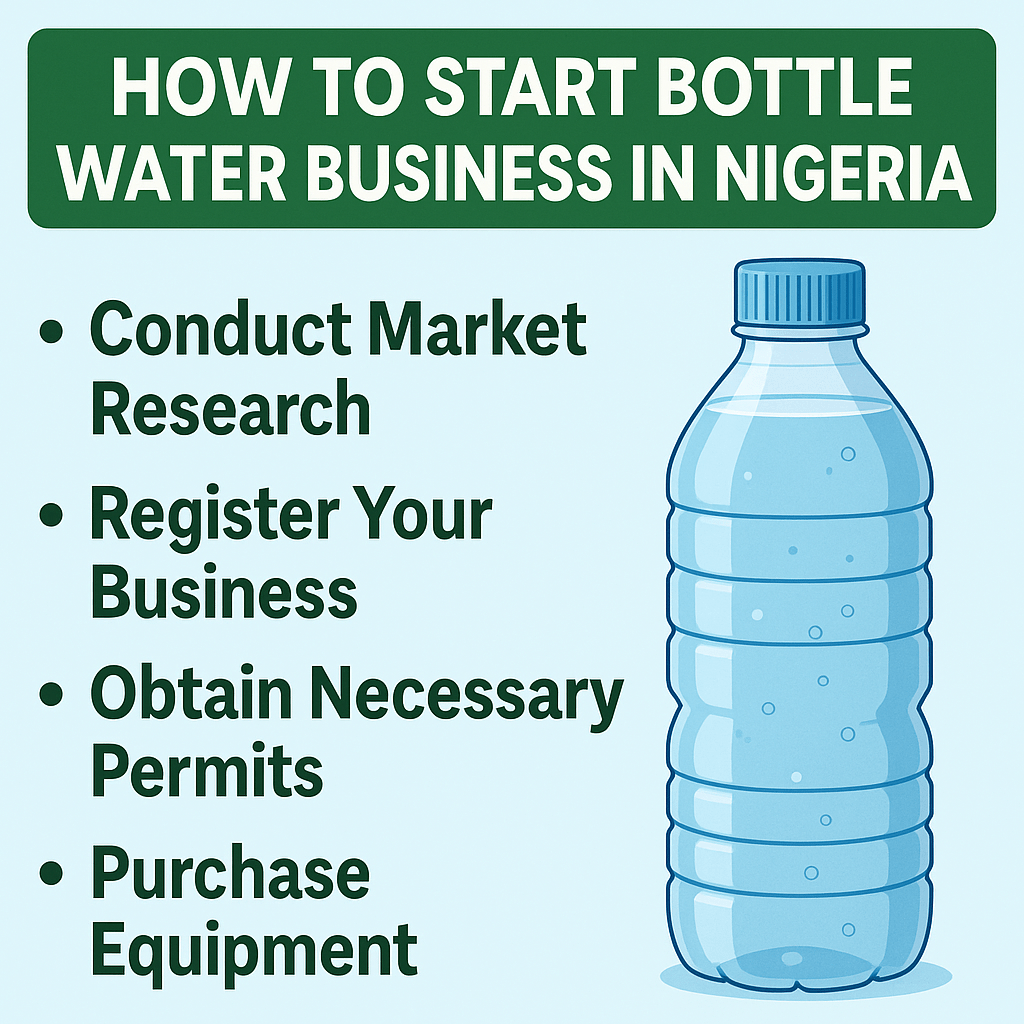
In Nigeria, there has been many businesses around that thrive while some will end you up in debts and it can be very difficult at times if you got yourself in the wrong type of business and you don’t have the support and financial needs to stand upright back.
One of the major businesses that will continue to thrive for years to come is investing in selling water in a more professional ways. A very good example is the C WAY bottle water on Nigeria, so if you get everything right, you will. Gain more.
Plastic Bottle water drinking became popular in Nigeria shortly after the introduction of sachet water, and most people today prefer bottled water over any other sort of water due to its clean processing and safety for human health.
Even if you are admitted to a hospital for an appointment, the medical expert will recommend bottle water over other options because it is more purified, according to research. If you want to start a business in this niche, there are some things you should know and consider before venturing into this business to avoid losing money.
The production of bottled water may appear overwhelming, but with appropriate strategy and execution, it can be a profitable endeavor. The bottled water business in Nigeria is thriving, driven by the demand for clean and easily accessible drinking water.
A successful bottled water business involves more than simply financial investment; it also necessitates strategic planning, the correct equipment, and a commitment to quality.
Investment and Business Costs
Setting up a bottled water factory in Nigeria requires a significant investment. As of now, the initial investment is between 15 and 30 million naira. The current Nigerian economy is dependent on factors such as location, capacity, and infrastructure. Below is a breakdown of some of the primary costs involved:
• Land and Factory Building: Purchasing land and erecting a factory building can cost between 7 and 15 million Naira, particularly if you choose a desirable location. Renting a suitable building is a potential alternative.
• Factory Site and Infrastructure: The annual cost of a factory site with a four-bedroom bungalow can range between one and three million Naira. A borehole, overhead tank, and generator plant may cost between 3 and 6 million Naira.
• Registration and Licensing: Register your company with the Corporate Affairs Commission (CAC). Furthermore, obtaining the proper licenses and permits, including NAFDAC approval, is critical, and you may learn about the pricing from government officials.
• Equipment: Key equipment includes automatic capping machines that cost between 350,000 and 3 million Naira, water treatment systems, PET bottle producing machines, bottle fillers, labeling machines, and more.
• Miscellaneous Expenses: Other expenses, such as employee pay, branding and marketing, packaging materials, and administrative costs, should be included in your budget.
Choosing a suitable location
Selecting the ideal site for your bottled water factory is crucial. Ideally, the facility should be located near urban regions and easily accessible to your target market. A position close to town will allow for effective distribution and timely delivery to retailers and customers.
Water Treatment and Bottling
Water treatment is an important step in maintaining the quality and safety of your bottled water. Common processes include reverse osmosis, deionization, and distillation.
The reverse osmosis process is frequently utilized since it is both effective and energy efficient. Proper water treatment eliminates pollutants and microorganisms, leaving you with pure and safe drinking water.
Bottling allows you to either create your own bottles or source them from a supplier. Investing in a complete production line can provide long-term benefits, despite higher initial expenses. This line typically consists of PET bottle-making machines, bottle rinsers, fillers, cappers, labelers, and packing equipment.
Distribution & Marketing
To effectively reach your target market, you must have a clear distribution strategy. Determine which sites your target clients frequent, such as sports arenas, retail malls, restaurants, hotels, and offices. Partnerships with these venues can help your brand’s visibility and accessibility.
Marketing your bottled water brand is critical to setting yourself out from competition. Use a variety of marketing channels, including television and radio commercials, social media campaigns, and promotions. Offering free samples, particularly during product debuts, can pique potential customers’ interest and encourage them to try new products.

Leave a Reply